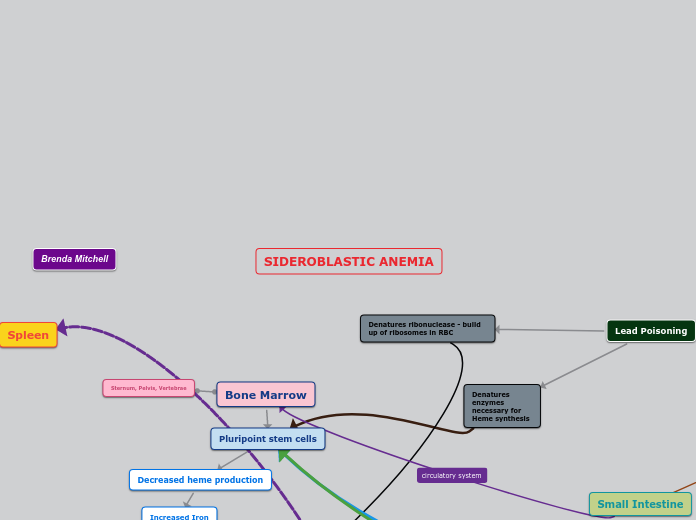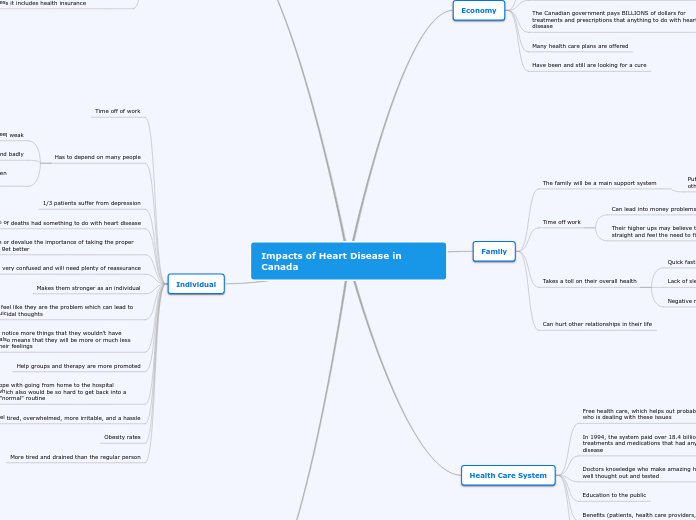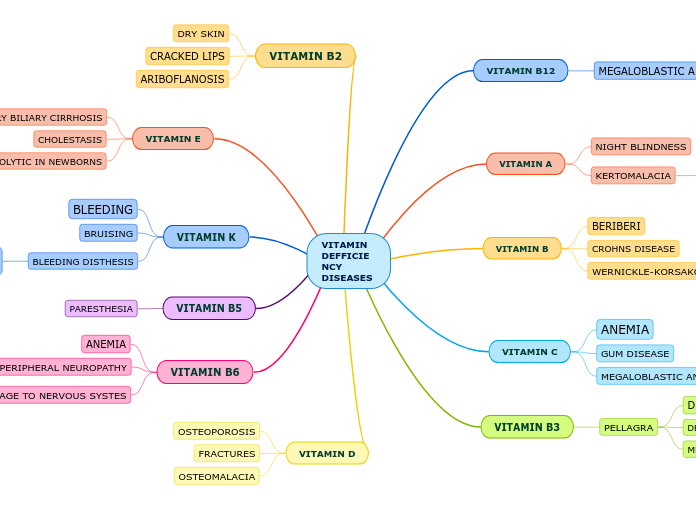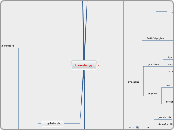Kidney
Treatment
Bone Marrow Transplant
Iron Chelating agents
Therapeutic phlebotomy
Administer Vit B6
Removal of toxins
Diagnostic Lab
Iron studies
Decreased Total Iron Binding capacity
Increased ferritin
Increased serum iron
Peripheral blood smear
Pappeheimer bodies in RBC
Basophilic stipling
CBC
MCV
Normal or High
Ringed Sideroblast
Lead Poisoning
Denatures ribonuclease - build up of ribosomes in RBC
Denatures enzymes necessary for Heme synthesis
Vitamin B 6 deficiency
Mitochondria's ability to form Heme
ETOH abuse
Mitochondrial damage
Small Intestine
Stomach
Brenda Mitchell
Heart
Lungs
Decreased RBC increase serum iron
Arterial System
Body Cells
Liver
Iron stored as Ferritin
Bone Marrow
Pluripoint stem cells
Decreased heme production
Increased Iron
Iron accumulates in mitochondria
Build up of ribosomes
Basophilic stimpling
Mitochondria surround nucleus
Excess Iron Deposits
Immature RBCs
Excess Iron builds up in organs and cause damage
Sternum, Pelvis, Vertebrae
Spleen
DIETARY IRON
SIDEROBLASTIC ANEMIA









